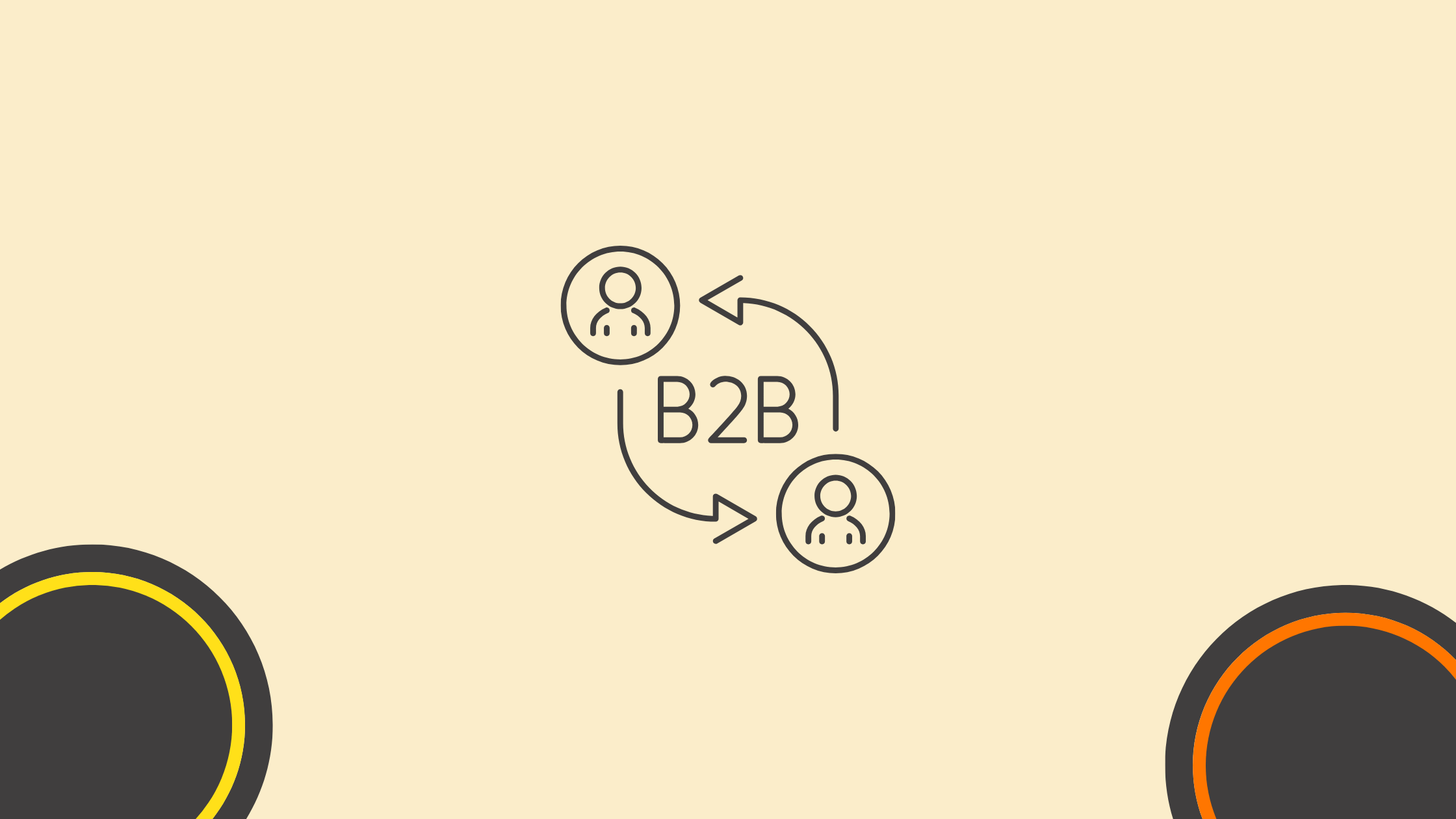Once a surprising word, AI has now evolved into a transformative force for modern-day businesses. Its influence extends beyond gaming, disrupting every aspect of the marketing and content creation industries. This evolution signals a promising future for B2B marketers, offering new opportunities and efficiencies.
According to a study conducted by SurveyMonkey of 707 US workers, including marketers, 50% create content with the help of artificial intelligence, and 70% of marketers expect AI to play a more significant role in their work.
Some businesses, such as MasterCard, EasyJet, and Under Armour, excel with AI, but many are still unsure how to proceed. Most of the industry’s tech giants invest in AI chatbots, recommendation systems, and predictive analytics to improve their marketing efforts. In this article, you will learn how AI can help in B2B content creation.
Chapters
What is AI Marketing for B2B?

AI’s pivotal role in B2B marketing encompasses methods, technologies, and algorithms for making intelligent marketing decisions. By leveraging machine learning, natural language processing, and other AI technologies, B2B businesses can significantly enhance workflow efficiency by automating data analysis, content generation, and personalization processes.
This integration of AI into the business workflow provides deeper data insights and enables the creation of highly targeted campaigns.
Advantages of AI in B2B Content Marketing
AI in content marketing offers numerous benefits for B2B businesses, enhancing their ability to connect with their audience and achieve marketing objectives.
Personalization, a cornerstone of effective marketing, is significantly enhanced by AI. With AI-powered predictive analytics, B2B businesses can forecast customer behavior, identify potential churn, and develop individualized personalization retention strategies. This advanced level of personalization empowers marketers to connect with their audience on a deeper level, fostering stronger relationships and higher engagement.
Faster Content Creation: Whether video, audio, or text, content creation has become faster than ever. Compared to the long hours it takes to make one poster or video, AI can do it within seconds with a detailed prompt. As per the HubSpot State of AI Report 2024, 43% of marketers use AI for content creation.
One of the key advantages of AI in B2B marketing is its ability to automate tasks, relieving your team from time-consuming activities. It handles tasks like data entry, lead scoring, and managing social media, allowing your team to focus on more valuable work, like building strategy, providing extra business protection, and solving complex problems creatively. This time-saving aspect of AI can significantly improve your team’s productivity and job satisfaction.
Content Strategy: AI helps identify patterns, detect potential issues early, and highlight brand mentions. For example, we use different AI tools in the legal field to improve our brand reputation and customer engagement, improve the overall law firm marketing, and make more informed strategic decisions. A study by SurveyMonkey found that 45% of marketers use AI for brainstorming content ideas.
How to Use AI for B2B Content Creation

The B2B target audience includes not only the end user but also small businesses, their stakeholders, and investors. Hence, content should be created to target all of them. There are specific ways AI can help build content, resulting in higher leads and sales.
Optimize Content for Search Intent
When you type ‘SEO’ and ‘how to learn SEO‘, the search engine results are different, and this is what search intent is. To ensure your content is visible to B2B businesses, focus on and optimize the relevant keywords. For example, best tools for legal firms, how to scale a service-based business, and top AI tools are some B2B-focused keywords.
The idea of considering these keywords is to target the right users. AI does this by understanding the context of a search, considering factors such as the user’s location, search history, and previous queries. For example, we invest in optimizing legal content for conversational queries to reach the maximum audience using different AI tools for law firms. AI uses NLP to find patterns and connections between words and phrases.
Understand Your Target Audience with AI Analytics
Understanding your target audience is crucial for creating a list of high-performing keywords, conversational search terms, and content. AI analytics can play a key role in this process, helping to uncover valuable insights by studying the audience’s behavior, preferences, and pain points. These insights can then be used to create content suitable for B2B marketing.
Some key features of AI analytics are predictive analytics, automated data analysis, and personalization. Predictive analytics can help study the highest-quality data to discover future trends. The necessary data elements that B2B businesses must provide to the AI are
- Social engagement
- Website analytics
- Campaign performance
- Event Analytics
Create Dynamic Customer Experiences with AI-Powered Prompts

Prompts are the backbone of AI chatbots and can help you create a dynamic customer experience. How?
A dynamic customer experience refers to a scenario where a personalized and adaptable expertise is provided to the customer based on real-time data and preferences. For example, if a customer asks an AI chatbot about a product, the AI can cross-verify the customer’s recent searches and target a product offer.
The chatbot can also probe the user with further AI-powered prompts related to the product to provide a better output. This way, AI automatically adjusts responses based on contextual cues and real-time interactions.
Use AI Chatbots for Real-Time Engagement
Using AI chatbots is not a new thing anyway. Several B2B businesses, such as Zalando, Marriott International, and AirHelp, use AI for real-time customer engagement. Today, AI agents are about to become the new normal for customer engagement.
Unlike regular chatbots, AI agents can understand the context by learning from interactions and making autonomous decisions about your content strategy. They can also help analyze trends, suggest content improvements, and execute complex marketing tasks without supervision.
Zayed Law Offices used a dynamic AI chatbot to provide automated 24/7 customer support. The law firm automated over 35 use cases by delivering customers self-serve options. The firm also achieved an average customer satisfaction score of 87%.
Leverage Predictive Analytics for Strategic Content Planning
Methods like machine learning and data mining have helped AI to revolutionize predictive analytics. Predictive analytics involves studying past and current data to predict future trends.
With AI-powered predictive analytics, B2B businesses can forecast which topics or types of content are likely to resonate with their audience. This knowledge allows creators to strategically plan content that aligns with anticipated trends, interests, and behaviors.
Predictive analytics helps content creators identify patterns and trends, such as popular topics, preferred content formats, and times when engagement is highest. Based on real-time data, AI can predict rising interest in specific topics, allowing B2B businesses to create content around them.
Conclusion
Content creation is one of the best ways to market your business’s products. While paid ads can deliver faster results, content creation is a more organic way. With AI, you can speed up the content creation process. Backed by machine learning, NLP technologies, and predictive analytics, B2B businesses can easily create content relevant to their audience. Furthermore, AI can also help brainstorm relevant content and build a strategy for maximum sales.
